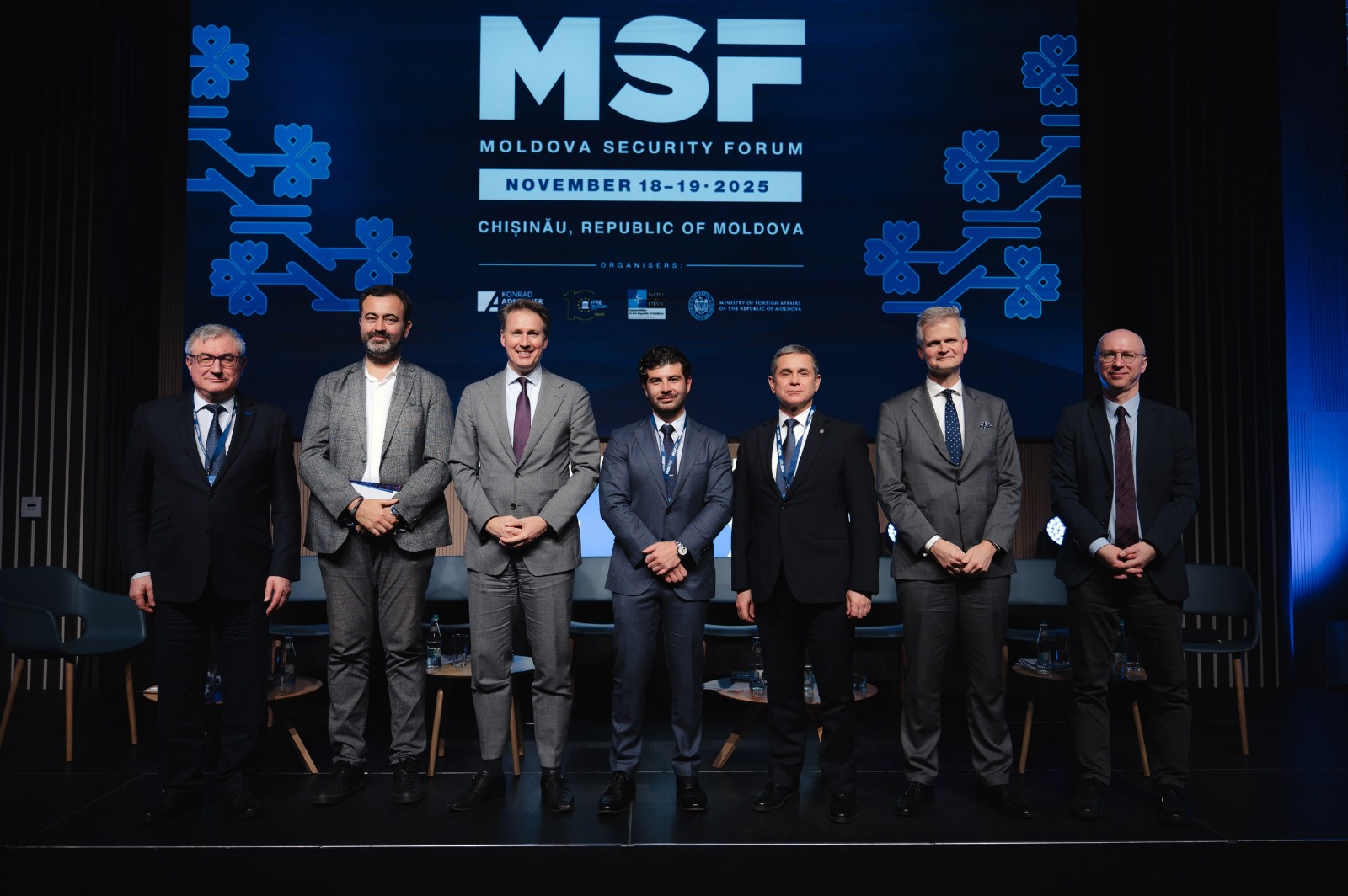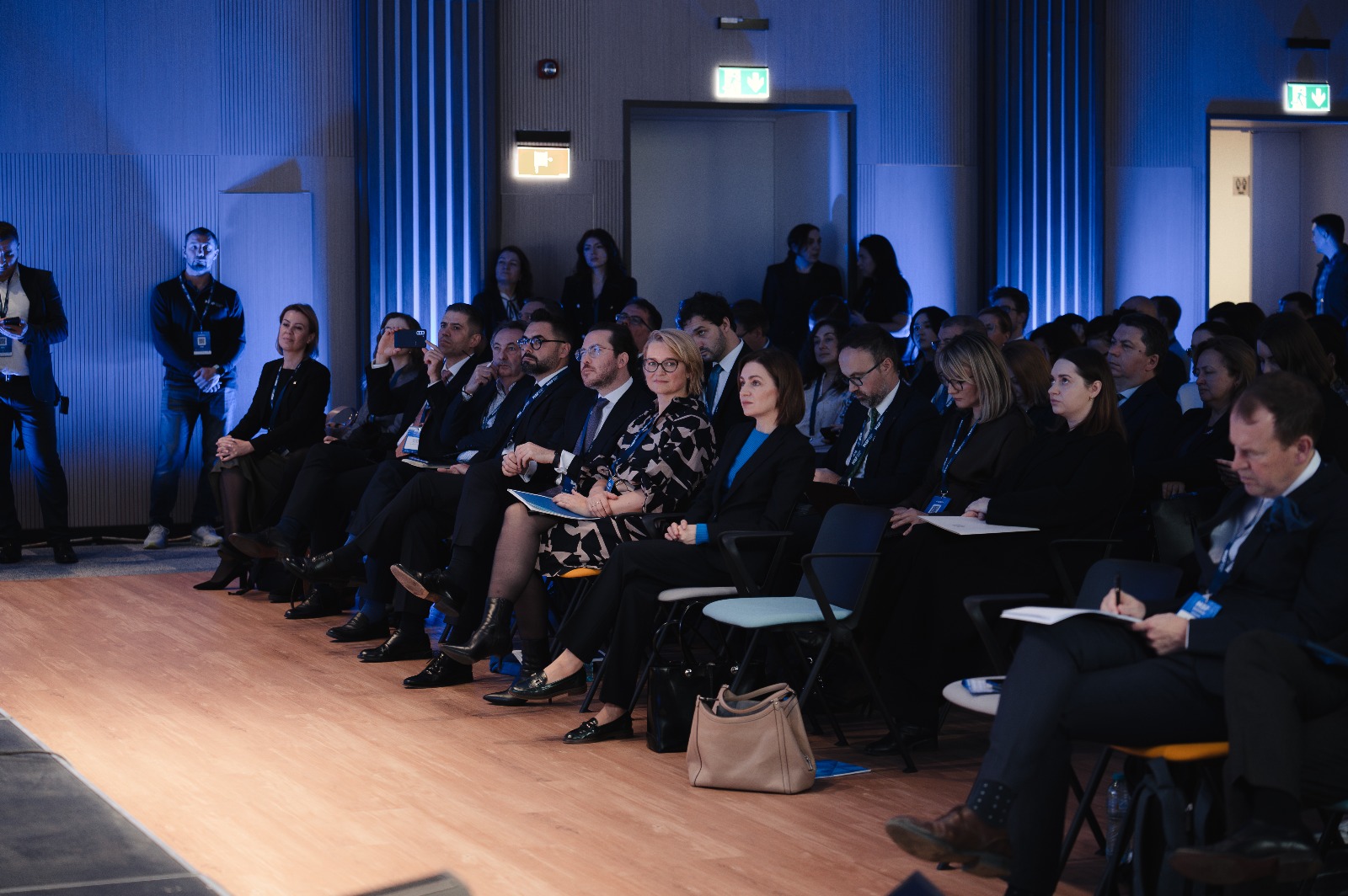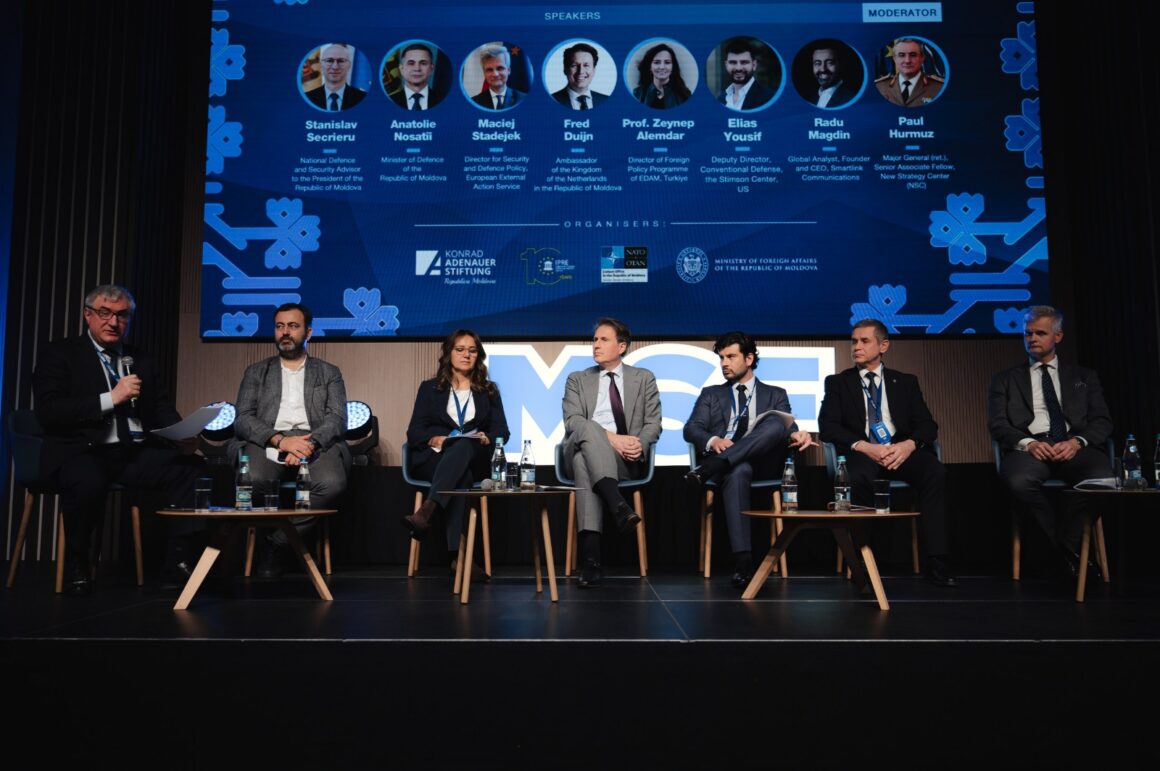New Strategy Center participated in the Moldova Security Forum, held in Chișinău on November 18–19, as a partner of the event. On November 18, NSC organized the panel “From Mapping to Response: A Shared Strategy for Countering Hybrid Threats in the Black Sea Region”, moderated by MG (ret.) Paul Hurmuz, senior associate expert.
The discussions highlighted the need for a common strategy to counter hybrid threats in the Black Sea region. The Republic of Moldova was presented as an example of resilience, demonstrating that rapid legislative adaptation, interinstitutional cooperation, and international partnerships can counteract the massive hybrid operations of the Russian Federation.

In the context of major energy projects developing in the Black Sea, where multiple gas perimeters are set to be exploited by Romania, Bulgaria, and Turkey, the protection of exclusive economic zones is becoming a strategic priority. Participants emphasized that only close coordination among these three allied Black Sea countries, together with partner states in the region and with consistent involvement from the EU and NATO, can ensure early detection, clear attribution, and effective collective responses to challenges targeting critical infrastructure.
The discussion featured Anatolie Nosatîi, Minister of Defence of the Republic of Moldova; Stanislav Secrieru, National Security and Defense Adviser to the President of the Republic of Moldova; Maciej Stadejek, Director for Security and Defense Policy within the EEAS; His Excellency Fred Duijn, Ambassador of the Kingdom of the Netherlands to the Republic of Moldova; Prof. Zeynep Alemdar, Director of the Foreign Policy Program at EDAM (Turkey); Elias Yousif, Deputy Director at the Stimson Center (USA); and Radu Magdin, CEO of Smartlink Communications.


